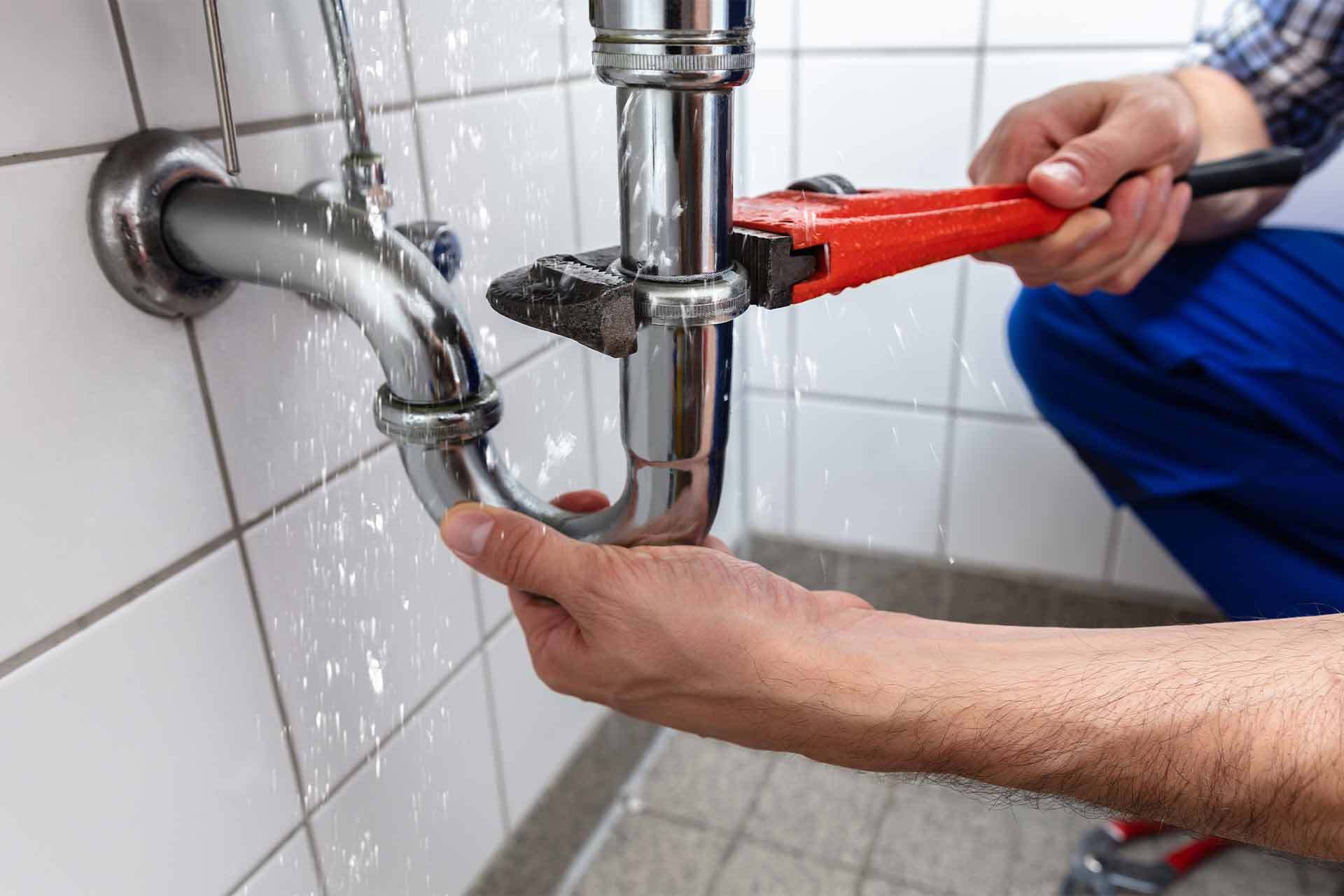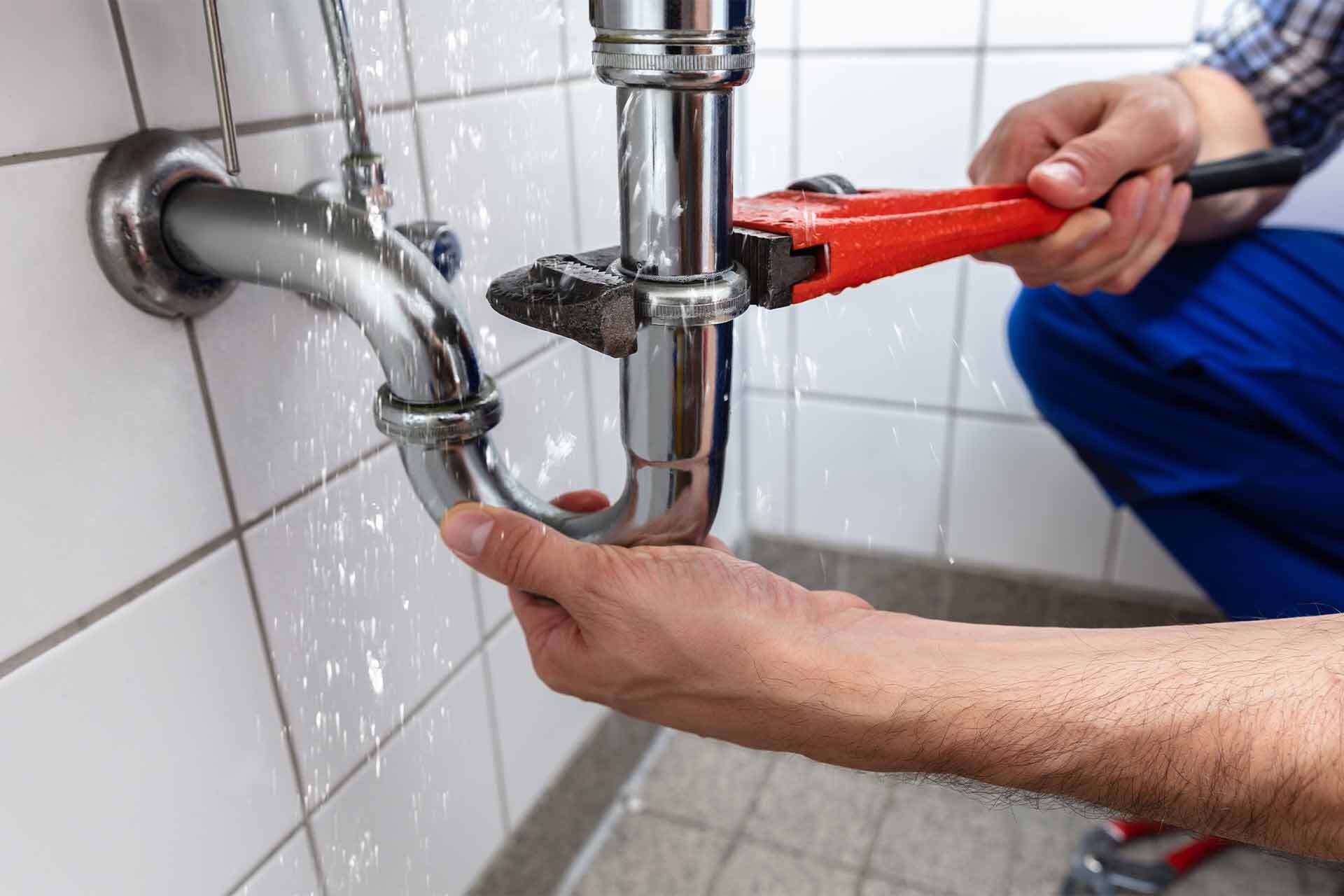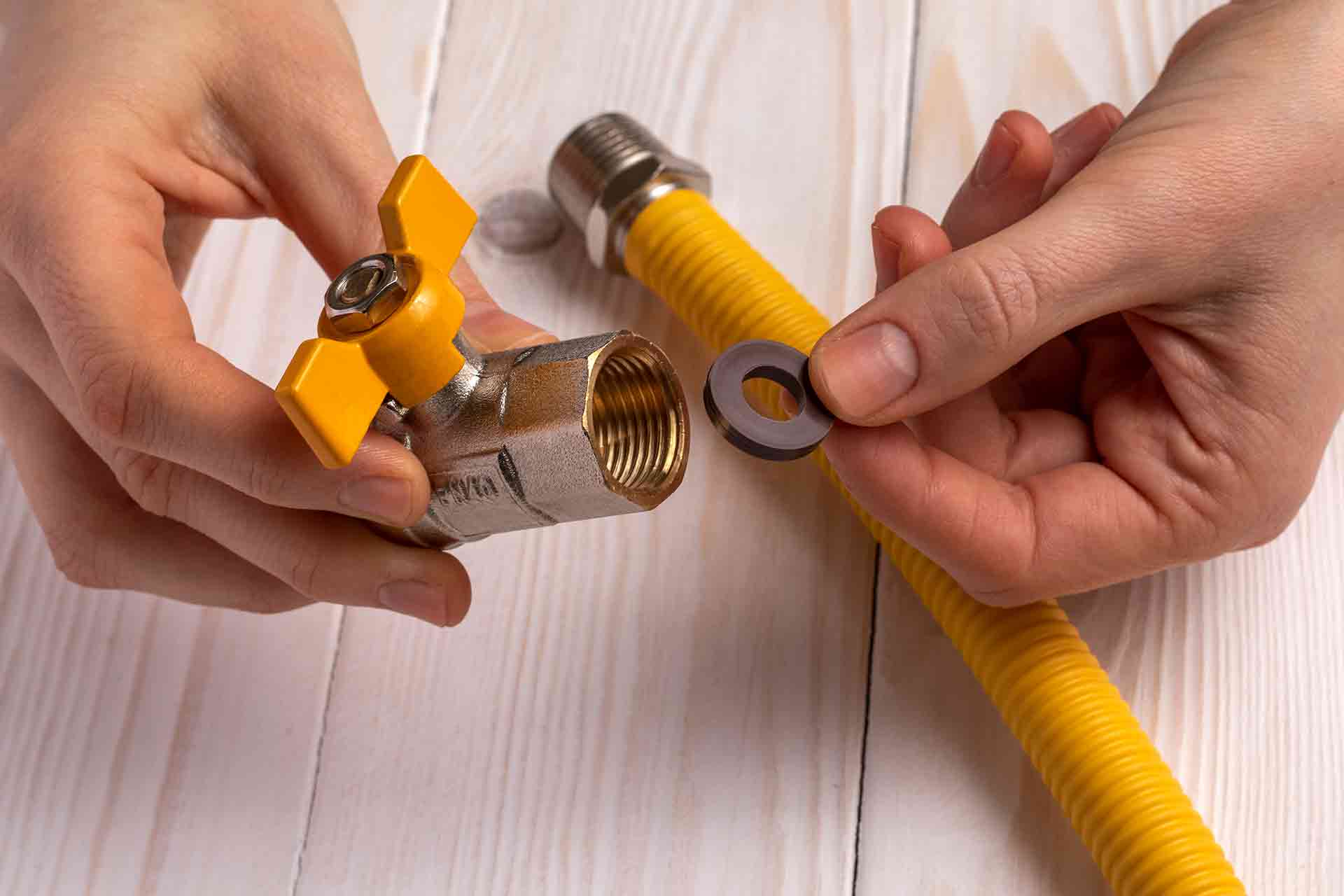Blog>Expert Advice>Leak at your water meter connection – what to do?
Last updated: 24 September 2024
Leak at your water meter connection – what to do?
Have you noticed an increase in your water bills? It could be a sign there’s a leak between your water meter and your house. Use this guide to figure out what to do, who is responsible, and how to fix it.
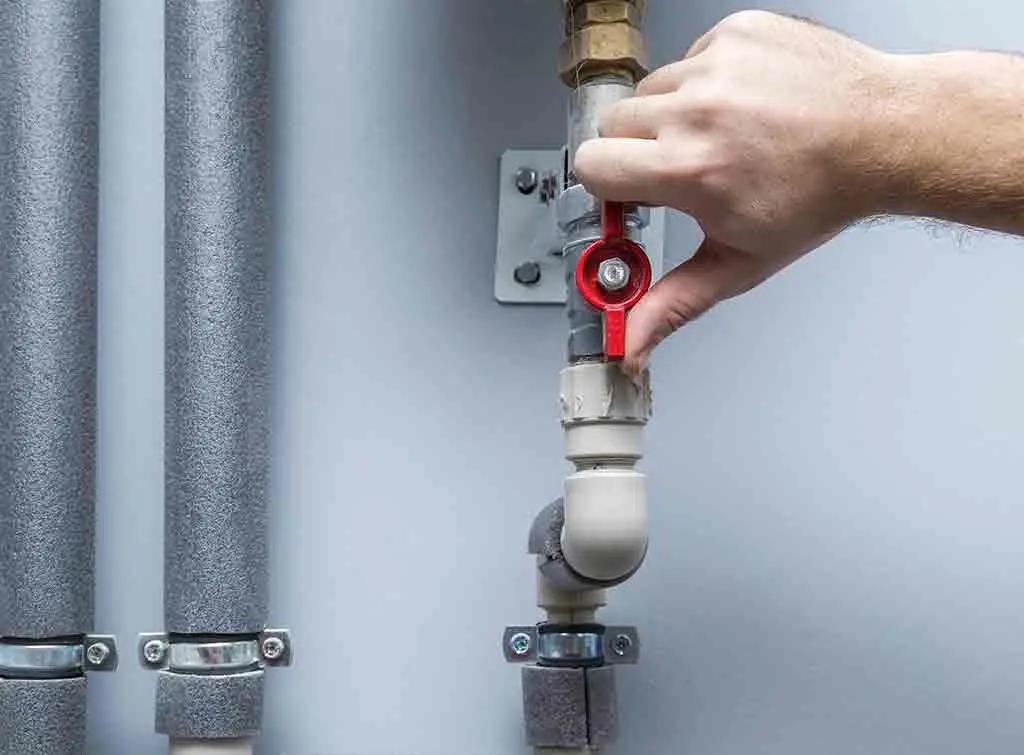
Discovering a leak at your water meter connection or meter is a headache. If left for too long, you might be charged for water you haven’t used, and it could cause damage to your home.
Generally speaking, your water company owns and maintains the water meter. So, if there’s a leak inside the meter, it’s up to them to fix it or replace it.
However, things aren't as straightforward if the leak is found in the connection pipework leading to the meter, as the homeowner is responsible for.
This guide helps you determine who is responsible and what to do about it. But first, why do water meters leak, and what problems does it cause?
See the tradespeople we've checked and recommend for your job
The problem with water leaking from your meter connection
Many UK homeowners have water meters to measure the water used in their homes. The meter allows the water company to bill you based on your usage rather than a fixed rate.
So far, so good. That is, of course, until you suspect water is leaking from your water meter or connection pipework.
If left unresolved, a leak can cause all sorts of problems in the home, including:
Damp and mould
You may notice mould appearing in or around the home’s exterior. This is not only unsightly, but it also poses health risks, especially for those with respiratory conditions.
Rise in water bills
A leak from your meter or connection pipes can cause your water usage to be recorded inaccurately, leading to higher bills. With water utility bills on the rise for everyone, this is far from ideal.
Damage to your home
If the water meter is located near your home and the leak is severe, water could enter your home and damage walls, floors, or electrical systems.
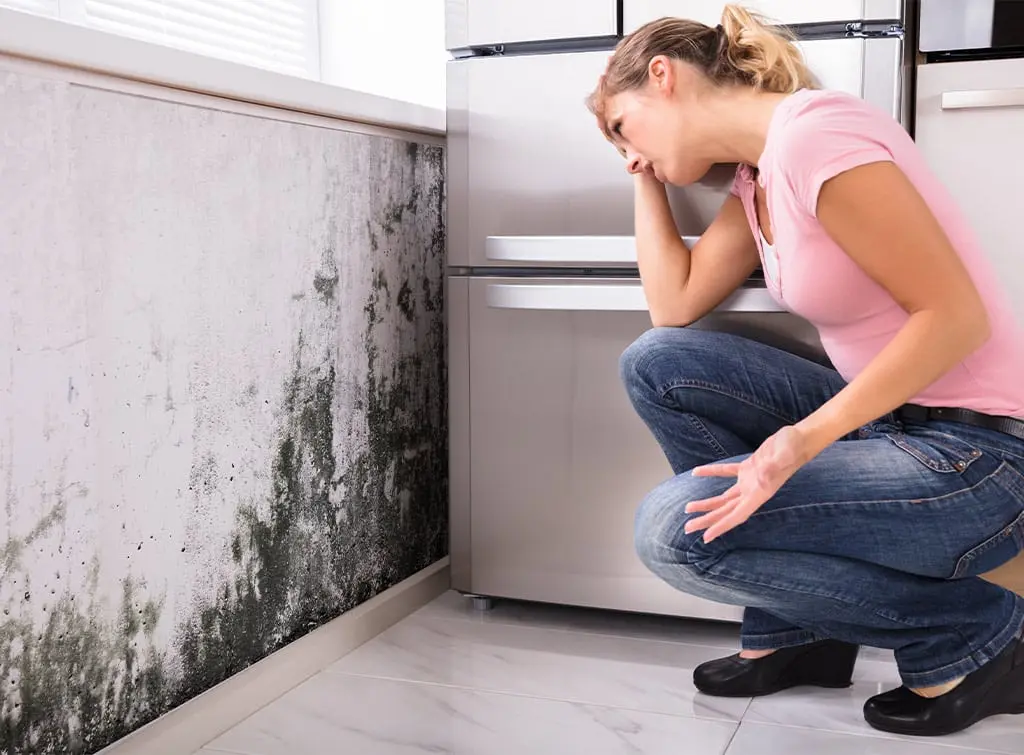
Why do water meters leak?
All water meters have a shelf-life due to general wear and tear. But there are other reasons why a leak could suddenly start. They include:
Burst pipes caused by freezing or corrosion
Faulty seals or gaskets
Poor installation
While you’re unlikely to check your water meter and connection pipework daily, a regular maintenance check is key to preventing any of the above issues from worsening.
So, what should you be looking out for? That’s next.
How can you detect a leak from a water meter?
Spotting a leak from a water meter can be straightforward – if you know where to look.
Outside water meters are typically hidden in a front garden or pavement near your home’s boundary. They are beneath a lid labelled 'water' or 'meter'.
Meanwhile, inside water meters tend to be tucked under a kitchen sink or in a downstairs toilet next to the stopcock.
The signs to look out with a leak include:
Visible water pooling around the meter itself or in the meter hole
A damp patch
Small leaks or visible damage to the connection pipes leading to and from the meter or the stopcock
Who is responsible?
As soon as you identify a leak from your water meter or connection, you should contact your water company to report the issue.
You may be asked to send them photo evidence to help them assess whether the leak is their responsibility or yours.
As mentioned, your water company typically owns and maintains the water meter and mains water pipes.
Meanwhile, the homeowner is responsible for maintaining and repairing any connection pipework within the home and the home’s boundary.
This can confuse many homeowners, so let’s break this down even further:
Water company responsibility:
If the leak is coming from the water meter itself and, therefore, is faulty
If there is a leak at the mains pipework found outside your home’s boundary
Homeowner responsibility:
If the leak is coming from one of the pipes leading to or from the meter inside your home
If there is a leak from outside connection pipework within your property boundary
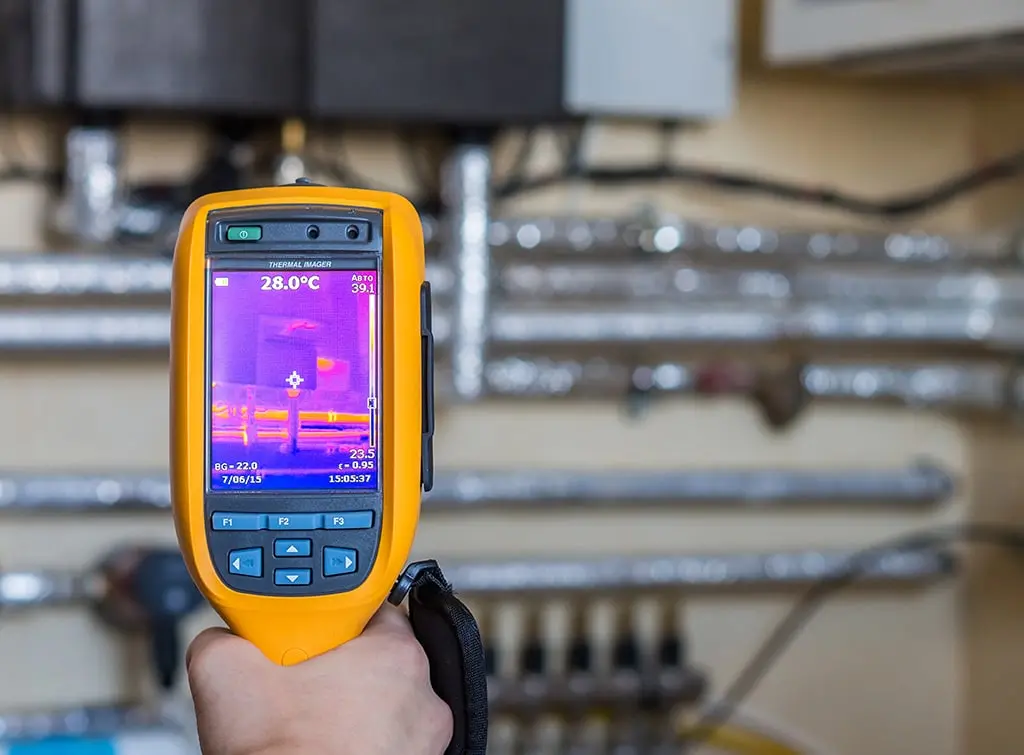
What to do if a water meter leaks inside your home
First things first, contact your water board. Remember, even though the water meter is in your home, it’s still their responsibility. They’ll likely send a certified plumber to fix the leak or replace the meter.
However, if your water company confirms that the issue is with the connection pipework, it is your responsibility.
You’ll need to hire a professional plumber to investigate. This also means you’ll be footing the bill. While this is far from ideal, you may be able to claim some money back through the water leak allowance, which we’ll explore later.
Before contacting a plumber, you can also take a few steps to understand the scale of the problem. They include:
1. Run a flow test
A flow test determines how much water the meter or damaged connection pipes are leaking.
The process is simple:
Turn off the stopcock (usually found under the kitchen kitchen) to make sure no water is being used
Read your water meter (including red digits and dials)
Wait a minimum of three hours without using any water
Take another meter reading
Your meter's reading should not have changed between the two readings. If it has, that’s a clear sign that you’ve got a water leak.
Make sure to keep a record of this reading. It could help you claim a leakage allowance from your water company. More on that later.
2. Use a water meter leak detector
If the flow test shows that you're losing water but you still can’t figure out where the leak is coming from, it might be worth investing in a water-sensing smart home device.
This nifty tool will send alerts to your phone when it detects moisture.
But if you’d rather leave it to the professionals, consider booking a water leak detection instead.
How to fix a leaking water meter connection?
If it’s been confirmed the leak is coming from the connection pipework, a professional plumber can help in the following ways:
Tighten loose connections between the pipes and the meter
Replace faulty washers or seals to create a watertight connection and stop further leaks
Fix or replace damaged pipes leading to and from the meter
How much does a professional plumber charge?
Costs will vary depending on the extent of work that needs to be done. However, to give you a general steer, the average plumber costs £50 per hour or £350 per day.
Check out our cost guide for a comprehensive rundown of plumber costs.
Top tip: Did you know you can apply for a water leak allowance to cover any increases to your water bill caused by the leak?
You’ll most likely be expected to complete the repairs within a specific time frame and provide evidence of a plumber’s repair invoice. However, each water company has different policies, so contact them directly for more information.
See the tradespeople we've checked and recommend for your job
How to find a reputable plumber?
If it’s confirmed that the water meter connection leak is your responsibility, you’ll want to find a reputable plumber to fix the problem quickly before it causes damage.
Hiring a professional plumber in your area is simple with Checkatrade’s free directory. Just add your postcode to the box below to search.
See the tradespeople we've checked and recommend for your job
Frequently asked questions
1. Should there be water in my water meter hole?
No, there shouldn't be any evidence of water in your water meter hole. Contact your water company immediately if you notice water pooling inside the hole or elsewhere within the meter.
2. How do I know if I have a water meter leak?
Water pooling around the meter or in the meter hole, leaks in the connection pipework leading to the meter, or a damp patch are all signs of a water meter leak.
3. How do you fix a leaking main water line?
All main water lines found outside your property’s boundary are the responsibility of your water company, and you'll need to alert them if you spot a leak. You or a plumber shouldn't attempt to fix a water main water line yourself.
More Expert Advice Articles
More Plumbing Repairs Articles
See the tradespeople we've checked and recommend for your job



